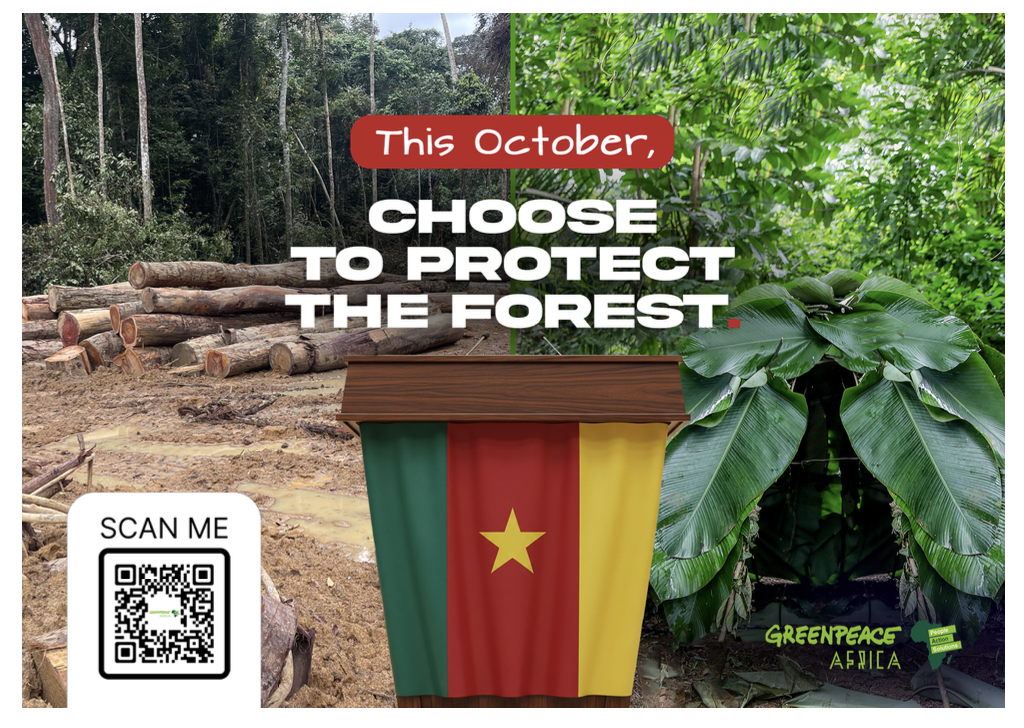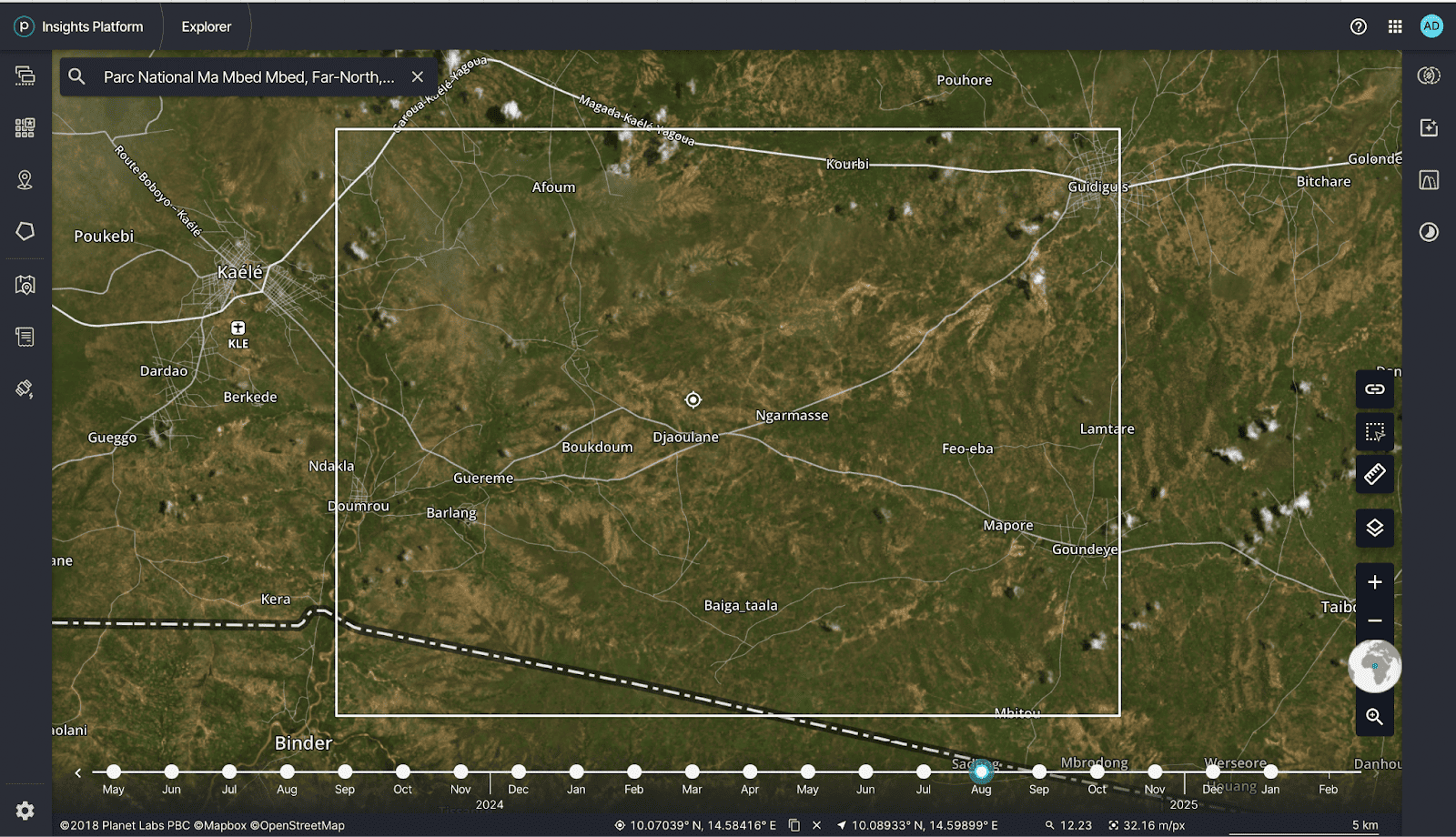Unsustainable and illegal logging in these forests is leading to deforestation, destruction of the ecosystem and diminished resilience to climate change. Creation of roads by logging companies facilitates bushmeat hunting poses another key threat to Cameroon’s biodiversity, often preventing proper regeneration of logged forest habitats (Bikié et al., 2000).
Related Posts
-

The Cameroon we want for the next 7 years – electoral demands in Cameroon by the Movement for Climate Justice in Cameroon.
Cameroon, one of the six countries of the Congo Basin, is also confronted with these challenges. In response, Greenpeace Africa launched the Climate Justice Movement (CJM) in Cameroon — a coalition that brings together civil society, local and Indigenous communities, and young people around a shared vision of environmental justice and sustainable governance of natural…
-

Turning the tide: Cameroon commits to ocean protection
Cameroon has taken a major step toward ocean protection by signing, on May 2, 2025, the Agreement on the Conservation and Sustainable Use of Marine Biological Diversity of Areas Beyond National Jurisdiction (BBNJ Agreement).
-

Cameroon: Greenpeace Africa calls on the government to cancel the decree creating Ma Mbed Mbed Park
Cameroon’s Far North is already facing significant challenges, particularly concerning security, and is one of the regions most affected by climate change. Last year, it experienced multiple waves of flooding. Food insecurity remains a persistent issue.
